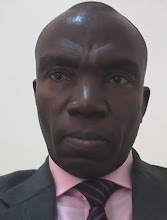Jossy Muhangi March 13 Mbarara makes headway in solid waste management
Environmental and health hazards currently bedeviling
With Mbarara Municipality population generating over 150 tons of solid waste per day part of which is collected by trucks for dumping at a site in Kenkombe ,Kakoba division thereby degrading the land and polluting the air in the vicinity, the construction of a compositor which turns solid waste into manure is expected to greatly check the hazardous impact on the neighbouring communities . The garbage that has been a menace will also turn into a blessing as its product once its turned into manure will help generate some income when it is sold to the farming community.
While the long time vision for
But the chief township officer Mbarara Municipality David Naluwayiro Kigenyi discloses that with assistance from the environment watchdog the National Environment Management Authority(NEMA),a project worth 400 million
The project site will also benefit from a six kilometer extension of piped water with the help of National water and sewerage corporation from which the neighbouring community will benefit. Kigenyi says the NEMA coordinated project has contributed a refuse collecting truck and 20 collection skips while in the subsequent phase the ministry of local government has promised to provide another truck.
The Mbarara Municipal environment officer Herbert Tumwebaze says the sites at which solid waste is collected and dumped suffers the environment and health hazards through the degrading of land and air pollution. He says the refuse from the unsorted garbage litters and contaminates the neighbouring water sources .
Councilors who represent the area where the dumping site is located cry foul of the nasty smell and pollution of the atmosphere but are optimistic the new project will mitigate the adverse effects .
The township officer Mr. Kigenyi reveals that about 17m shillings is spent per month on collection of the solid waste by the trucks in the municipality. Part of it is collected directly by the council trucks and another part is managed by private contractors .
He attributes the ever rising solid waste problem to an increasing population a big percentage of which is poor which does not appreciate the desire for beauty and standards. All the majority of the town dwellers care about is their survival and it is difficult to change their negative attitude .He wonders why some town dwellers for instance in their own wisdom choose to throw their solid waste on the surface even when the skips are half empty.
On the government policies, Kigenyi feels the implementation of our environment laws is weak compared to neighbouring
Mbarara’s Resident District commissioner Clement Kandole also agrees with Kigenyi on the ambiguity of Ugandan laws on environment. He wonders for instance how an ordinary person is expected to comprehend the difference in gauges of the polythene materials in terms of microns yet it could be more realistic to say impose a ban on all polythene materials.
With proper implementation of the solid waste management project, active involvement of the stake holders including the communities neighbouring the dumping site and continued awareness on sustainability of the project, the environment related hazards in Mbarara and other towns could be history .
End

No comments:
Post a Comment